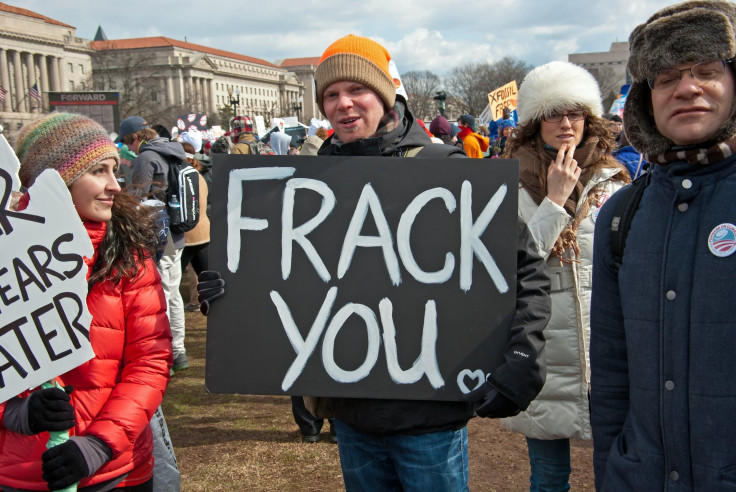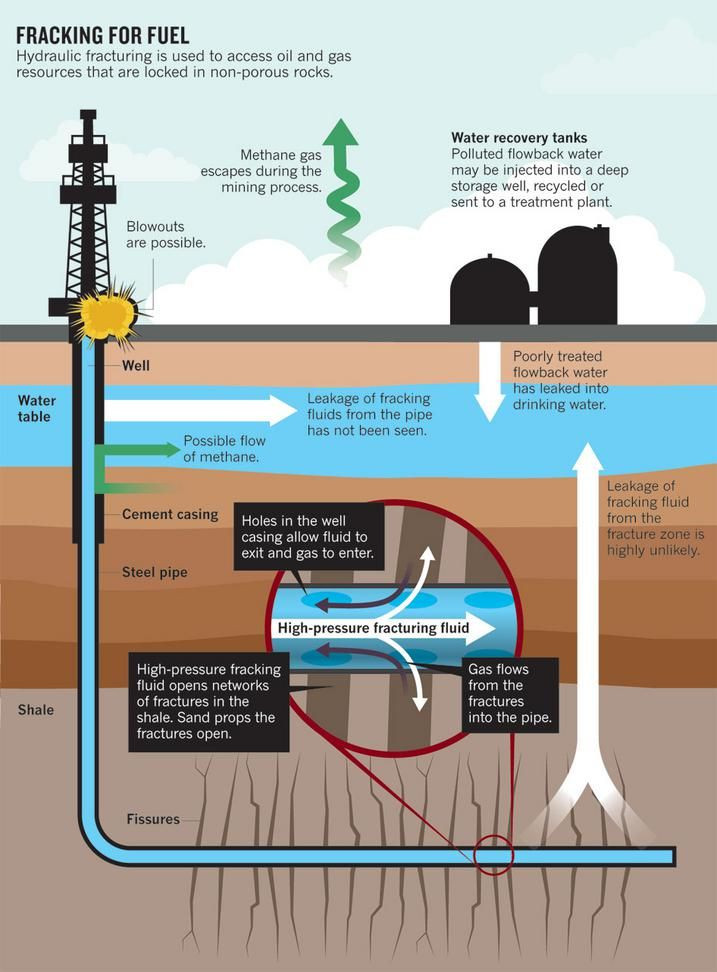Fracking's Possibly Unhealthy Chemicals To Be Disclosed By Major Gas And Oil Firm

In a surprise move, U.S. oil and gas supplier Baker Hughes announced they would disclose all chemicals used in hydraulic fracking — with no exceptions for trade secrets.
“Baker Hughes believes it is possible to disclose 100 percent of the chemical ingredients we use in hydraulic fracturing fluids without compromising our formulations — a balance that increases public trust while encouraging commercial innovation,” the company announced this week on its website. The company said it would soon release the complete list of products and chemical ingredients used in its fracking, the process of injecting high-pressure water into underground shale rock to “free” dense sources of energy.
Although others in the industry gave no indication they’d soon follow Baker Hughes in disclosing the industrial chemicals to the public, at least one public health analyst saw hope for more voluntary disclosures. "This is really good news. It's a step in the right direction," Bernard Goldstein, the former dean of the University of Pittsburgh Graduate School of Public Health, told The Huffington Post this week. "One hopes that the entire industry goes along with it."
Yet the company’s new chemical disclosure policy leaves a loophole, Goldstein says, in its promise to make full disclosure “where accepted by our customers and relevant governmental authorities.”

Company spokeswoman Melanie Kania told The Huffington Post it would take “several months” for them to implement the new policy with the end result a “single list” providing all chemicals used in fracking fluids. That newspaper also reported that oil and gas supplier Haliburton, also based in Houston, had failed to respond to request for comment on the issue.
Presently, U.S. regulators allow oil and gas companies to withhold disclosure of many fracking chemicals with a trade secret exemption, although 15 states require full disclosure. Investigators from the Energy Department found in March that 84 percent of wells known to “FracFocus” invoked the exemption to withhold one or more chemical ingredients to the public. Energy officials from the Obama administration say they favor “full disclosure of all known constituents added to fracturing fluid with few, if any exceptions.”
Naturally, the American Petroleum Institute and other industry groups oppose mandatory disclosure with no trade secret exemption, saying that additional regulations would hamper U.S. economic growth and cost the country jobs. But the Interior Department may have the last word on the matter later this year, with updated regulations for fracking on 700 million acres of federal land along with another 56 million acres of tribal land.
Still, some environmental groups won’t rest with full disclosure of chemicals possibly hazardous to human health. Food & Water Watch, a Washington, D.C. think tank, has called for a complete ban on fracking in the United States. “Fracking is inherently unsafe and we cannot rely on regulation to protect communities’ water, air, and public health,” the group says online. “The industry enjoys exemptions from key federal legislation protecting our air and water, thanks to aggressive lobbying and cozy relationships with our federal decision-makers.”
Joe Hoffman, a geologist from Montana State University says fracking presents humans with such possible health hazards as poisoned groundwater and methane-polluted air, along with the industrial diversion of precious water resources in drought-stricken regions. Each fracking well produces millions of gallons of polluted water containing not only the added chemicals but dangerous elements occurring naturally in the world, including radioactive materials. Moreover, the fissures in the rock created by fracking allows gases, chemicals, and radioactive materials to spread further underground.
The Environmental Protection Agency is launching a major study of fracking this year. Below is a YouTube video on fracking's potential dangers to human health:
Published by Medicaldaily.com



























